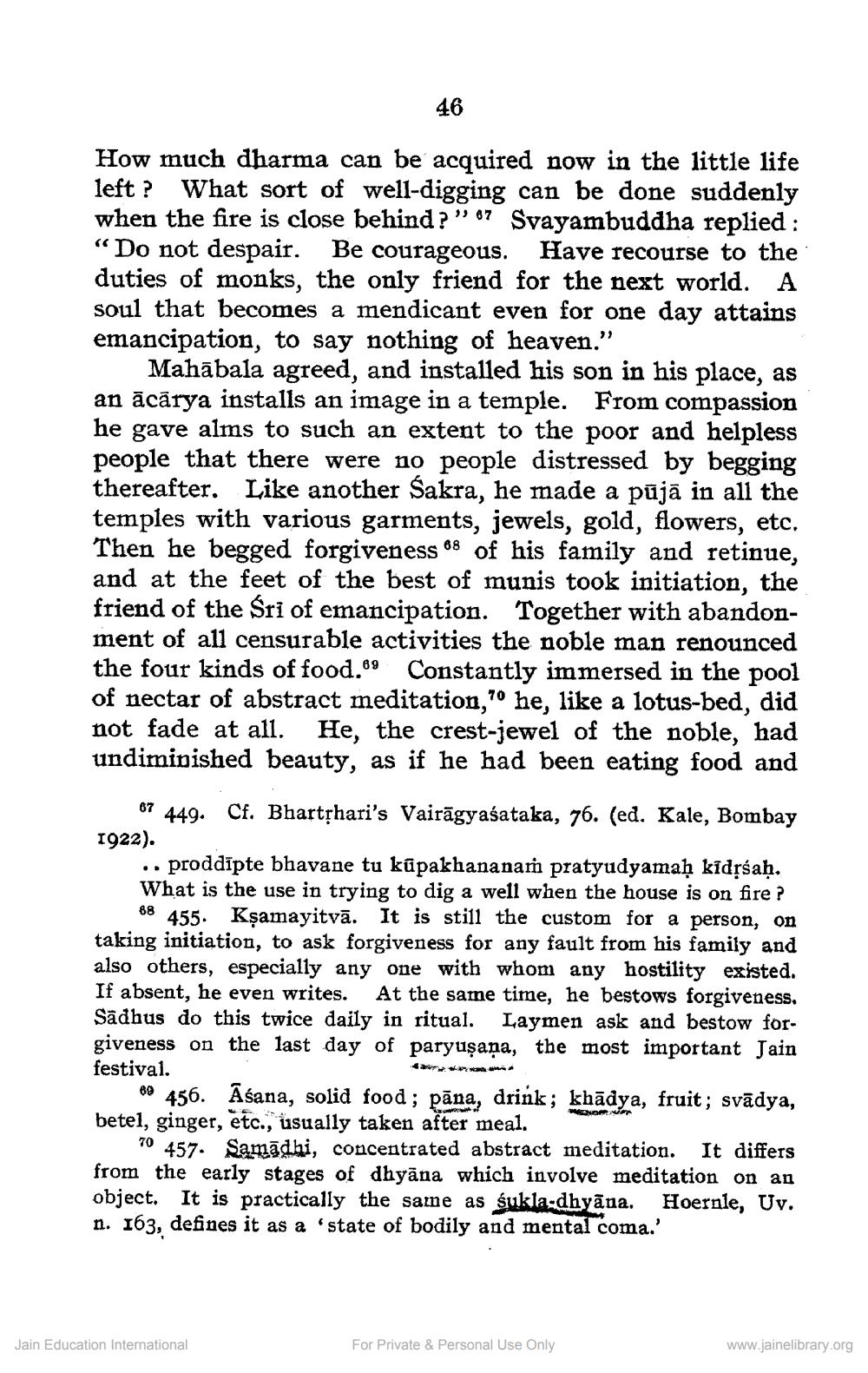________________
46
How much dharma can be acquired now in the little life left ? What sort of well-digging can be done suddenly when the fire is close behind ?"07 Svayambuddha replied : “Do not despair. Be courageous. Have recourse to the duties of monks, the only friend for the next world. A soul that becomes a mendicant even for one day attains emancipation, to say nothing of heaven.”
Mahābala agreed, and installed his son in his place, as an ācārya installs an image in a temple. From compassion he gave alms to such an extent to the poor and helpless people that there were 10 people distressed by begging thereafter. Like another Sakra, he made a pūjā in all the temples with various garments, jewels, gold, flowers, etc. Then he begged forgiveness 68 of his family and retinue, and at the feet of the best of munis took initiation, the friend of the Sri of emancipation. Together with abandonment of all censurable activities the noble man renounced the four kinds of food.69 Constantly immersed in the pool of nectar of abstract meditation," he, like a lotus-bed, did not fade at all. He, the crest-jewel of the noble, had undimipished beauty, as if he had been eating food and
67 449. Cf. Bhartshari's Vairāgyaśataka, 76. (ed. Kale, Bombay 1922).
.. proddīpte bhavane tu kūpakhananaṁ pratyudyamaḥ kidịśaḥ. What is the use in trying to dig a well when the house is on fire ?
88 455. Kşamayitvā. It is still the custom for a person, on taking initiation, to ask forgiveness for any fault from his family and also others, especially any one with whom any hostility existed. If absent, he even writes. At the same time, he bestows forgiveness. Sadhus do this twice daily in ritual. Laymen ask and bestow forgiveness on the last day of paryuşaņa, the most important Jain festival.
89 456. Āśana, solid food; pāna, drink; khādya, fruit; svādya, betel, ginger, etc., usually taken after meal.
70 457. Samadhi, concentrated abstract meditation. It differs from the early stages of dhyāna which involve meditation on an object. It is practically the same as sukla-dhyāna. Hoernle, Uv. n. 163, defines it as a 'state of bodily and mental coma.'
Jain Education International
For Private & Personal Use Only
www.jainelibrary.org




